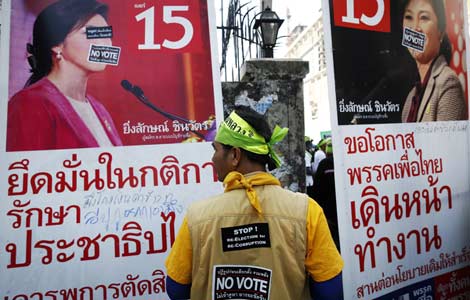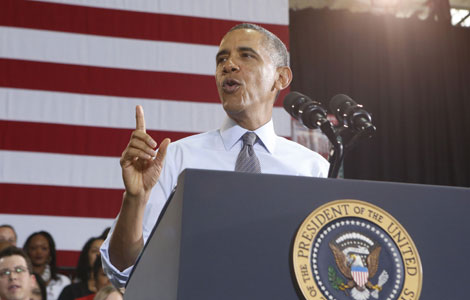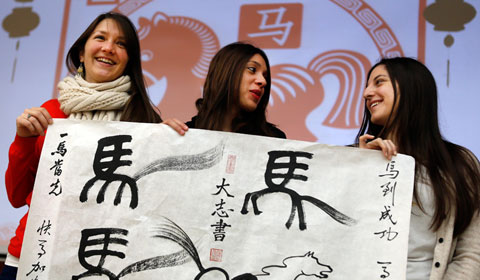Better Iran ties are good for the US
Updated: 2014-02-05 14:43
By Hua Liming (China Daily USA)
|
||||||||
The Joint Plan of Action, an agreement signed by Iran and P5+1 countries, the five permanent members of UN Security Council and Germany, on Nov 24, 2013 in Geneva, Switzerland, comes into effect on Monday. According to the plan, Iran will temporarily freeze parts of its nuclear program in exchange for decreased economic sanctions. This has laid the foundation for further negotiations.
The agreement was made possible by the change in the relationship between the United States and Iran. The genesis of this change can be traced back to June, 2013, when moderate politician Hassan Rouhani won the presidential election. Actually, Rouhani had vowed to improve relations with the West even before his victory. As soon as he took office in August, the US and Iran started negotiations through the Sultan of Oman and achieved a consensus in September.
The UN General Assembly in the same month also marked an essential breakthrough in the process. In his speech, US President Barack Obama for the first time recognized Iran's right to peacefully use nuclear power, and demonstrated that they have no intention of changing Iran's regime. When Rouhani left the United Nations for the airport, the two Presidents had exchanged a call - the first between the leaders of the two countries in 34 years.
Then, after the Iranian foreign minister met with the US secretary of state, negotiations between the P5+1 countries and Iran were restarted, with agreement being soon reached. Its coming into effect on Monday can be considered a milestone in lessening the mutual hostility between the US and Iran.
Of course, nothing frozen for a whole winter can melt in a day; neither can the antagonism between US and Iran. For over three decades the two countries were completely without diplomatic relations, and the lack of mutual trust is now deeply rooted.
Both nations' leaders face enormous domestic pressure in trying to improve mutual relations. The Republicans in the US are calling for stricter sanctions against Iran, while Jewish lobby groups and Israel are also trying to reverse Obama's policy.
At the same time, conservatives in Iran are also exerting pressure to try and curb Rouhani's efforts to improve relations with the US. They don't want a repeat of what happened in Libya, where the regime of Muammar Qaddafi gave up developing nuclear technology about ten years ago only to be overthrown in 2011. Therefore Iran has drawn a red line in its negotiations with the US, namely never giving up its nuclear plans. Iran promises to peacefully use nuclear energy and is willing to accept the supervision of the International Atomic Energy Agency; it will even restrain itself from producing enriched uranium with military-level density, but it will preserve the capability to produce low-density enriched uranium and nuclear fuel.
That also constitutes a last guarantee for Iran, namely if the US dishonors its promise one day, Iran would still be able to resume its nuclear production. Thus Iran has benefited a lot from the agreement with the P5+1 countries.
However, the agreement is also good for US. Obama said his diplomacy "opened up a new path toward a world that is more secure", at least for the US.
After World War II, the US invested enormous manual and material resources in the Middle East; but its declining capabilities mean it is no longer possible for the US to shoulder as many global responsibilities as it used to. Solving its dispute with Iran can help the US avoid the danger of having to fight another war in the Middle East, which it cannot afford.
Besides, Iran has intimate relations with Syria and Afghanistan, so a better relationship with Iran means it will be easier to solve the problems in these two countries.
Improving the relationship with Iran will also aid the US' "rebalancing" in the Middle East. For decades, the US has had to rely on Israel and Saudi Arabia in the region; if Iran can be turned into a friend, the US would be able to prevent the Israeli or Saudi Arabian tail wagging the US dog and it would have strategic space in which to maneuver.
Further, solving the Iranian nuclear problem is part of the US' global strategy. Obama is concentrating on two main issues: promoting economic recovery at home; and shifting its strategic focus eastward abroad. Easing some of the pressure in the Middle East can help with both issues.
By shifting its strategic focus eastward the US means pivoting to East Asia, where there is another main opponent, the Democratic People's Republic of Korea. Thus it is predictable that US will refuse to follow a similar mode in interacting with DPRK - on the contrary, the US is likely to continue maintaining the tensions in East Asia, so that its troops have more reasons to continue staying in Japan and the Republic of Korea. That requires China take measures to maintain regional stability.
Hua Liming is China's former ambassador to Iran and the article is an excerpt of his interview with China Daily writer Zhang Zhouxiang.
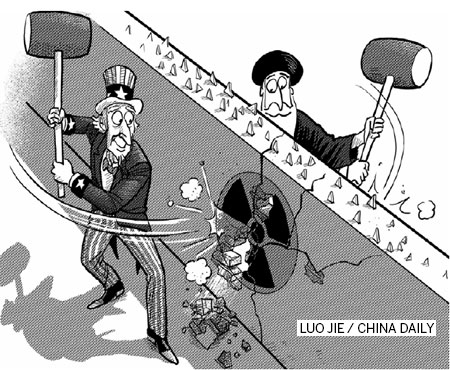
(China Daily USA 02/05/2014 page12)
Most Viewed
Editor's Picks

|
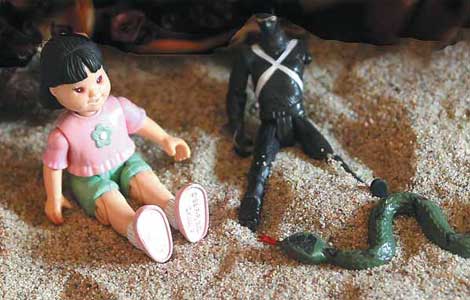
|

|

|

|

|
Today's Top News
Data show rebalancing, not weakness: economist
US envoy counsels restraint
Obama to visit Jefferson's estate with Hollande
US braces for falling deficit
US Senate okays ambassador nominee to China
Anti-graft agency to widen net
US Senate passes farm bill
Non-manufacturing PMI drops in Jan
US Weekly

|

|


